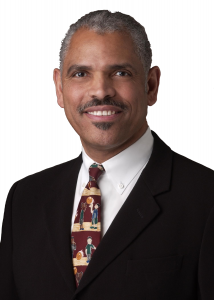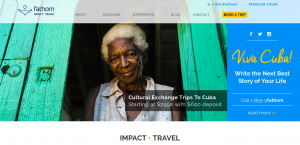
CUBA STANDARD — Seeking to enter Cuba through the widening crack in U.S. sanctions, Miami-based Carnival Corp. announced it obtained U.S. licenses and plans to begin offering travel to the island next year through a new, smaller-scale brand.
If it manages to get started as planned, the world’s largest cruise company will enter Cuba with one of its smallest vessels. U.S. laws still prohibit tourism; the U.S. Treasury and Commerce Department licenses Carnival obtained allow it to engage in people-to-people travel.
Even so, the Carnival move sends a signal to the entire cruise industry that Cuba is on the way to become a mainstream destination.
“We think it’s great for American people, we think it’s great for Cuba, we think it’s great for the Caribbean at large, and it’s certainly great for the industry,” said Carnival CEO Arnold Donald on CBS’ This Morning.
In a press release, the company said it is “in active discussions and plans to work with the appropriate authorities in Cuba” seeking approval.
“Obviously that’s their decision,” Donald said on CBS. “But we are working closely with them. We certainly have every expectation that we will give them what they need so they feel comfortable, and we’ll bring excited U.S. guests to Cuba on cruise ships for the first time in well over 50 years.”

If comments by Cuba’s chief diplomat in the United States are an indicator, Havana keeps the door open to U.S. cruise companies. During a recent tour in Florida, José Ramón Cabañas Rodríguez pointed out repeatedly that the licenses U.S. authorities have granted to ferry operators earlier this year are broadly worded, speaking about “commercial vessels for passengers,” not just ferries.
“There are a lot of things that could be done,” Cabañas said, in a hint to the cruise industry.
Carnival says it plans to launch its Cuba program in May 2016 under fathom, a cruise brand started in June. The company describes fathom, which will begin with cruises to the Dominican Republic first, as a “social impact travel brand providing purpose-oriented, social impact experiences.” Carnival expects the brand to attract 37,000 annual travelers, from a potential market of 1 million North Americans “strongly predisposed” to activism-related travel.
Apparently responding to criticism against large cruise companies’ strong-arming of small destinations, fathom cultivates a “long-term, systematic partnership approach with its partner countries.”
Fathom is working closely with IDDI, a Dominican Republic-based non-profit organization working on poverty relief in the Caribbean. IDDI founder David Luther was quoted in the Carnival press release as saying that his organization has “long-standing relationships in Cuba.”
 “Cuba will be a little bit different” from the fathom approach in the Dominican Republic, Donald said. “Cuba will be cultural exchange, and, just like we did in the Dominican Republic, we will work with the Cuban locals to figure out what works for them.”
“Cuba will be a little bit different” from the fathom approach in the Dominican Republic, Donald said. “Cuba will be cultural exchange, and, just like we did in the Dominican Republic, we will work with the Cuban locals to figure out what works for them.”
According to Carnival’s plans, the 710-passenger MV Adonia will be leaving from Miami, and offer weekly seven-day cruises around the island with a “cultural, artistic, faith-based and humanitarian” itinerary. Seven-day fathom cruises to Cuba will start at $2,990, nearly twice as much as the brand’s Dominican Republic cruises.
Carnival joins a field limited by Cuba’s underdeveloped cruise infrastructure that’s increasingly crowded by Canadian and European cruise lines. According to the Transportation Ministry, the number of port calls rose from 24 in 2012 to 139 in 2014, while the number of disembarking passengers mushroomed from 6,770 to 37,519 in the same period. From January through May this year, there were 174 port calls with 62,183 passengers.
By starting in summer rather than the higher-demand winter season, Carnival will likely avoid competing with Canada-based Cuba Cruises and Switzerland-based MSC Cruises, which are offering Cuban itineraries with two ships bigger than the Adonia.
Asked about infrastructure deficits in Cuba, Donald said on CBS that “the ship will be fine going in,” adding that “there will be some additional infrastructure” they will try to obtain through Cuban authorities.
